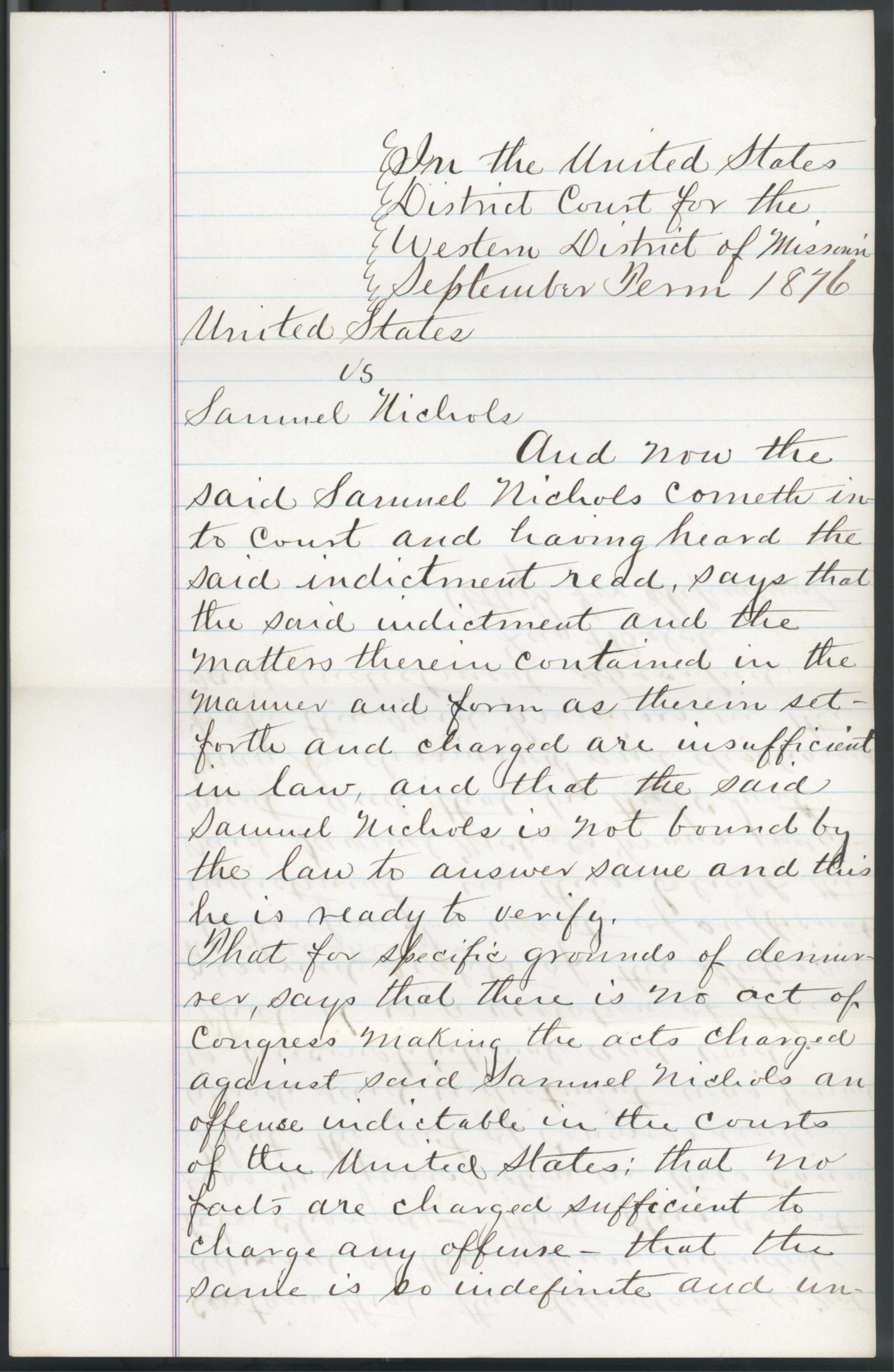Demurrer from United States v. Samuel Nichols
11/17/1876
Add to Favorites:
Add all page(s) of this document to activity:

Add only page 1 to activity:
Add only page 2 to activity:
Add only page 3 to activity:
In the District Court for the Western District of Missouri, Samuel Nichols was charged with “denial of civil rights on account of race or color” after Nichols refused to allow W.H.R. Agee to stay at the Nichols Inn in Jefferson City on May 22, 1876. After determining that United States v. Nichols implicated “difficult and important questions of law,” the district court passed the case to the circuit court, which then issued a certificate of division to the United States Supreme Court.
Five cases (Stanley, Ryan, Nichols, Robinson, and Singleton) were eventually consolidated into the Civil Rights Cases. The Court, with Justice Joseph P. Bradley writing for the majority, held that the Civil Rights Act of 1875 was unconstitutional because it sought to regulate individual action, which was appropriately regulated by the state police power and not by the federal government’s authority under the Fourteenth Amendment.
Five cases (Stanley, Ryan, Nichols, Robinson, and Singleton) were eventually consolidated into the Civil Rights Cases. The Court, with Justice Joseph P. Bradley writing for the majority, held that the Civil Rights Act of 1875 was unconstitutional because it sought to regulate individual action, which was appropriately regulated by the state police power and not by the federal government’s authority under the Fourteenth Amendment.
This primary source comes from the Records of District Courts of the United States.
Full Citation: Demurrer from United States v. Samuel Nichols; 11/17/1876; United States vs. Samuel Nichols; Records of District Courts of the United States, Record Group 21. [Online Version, https://www.docsteach.org/documents/document/demurrer-from-united-states-v-samuel-nichols, April 25, 2024]Rights: Public Domain, Free of Known Copyright Restrictions. Learn more on our privacy and legal page.






